6. August 2018 - 13:42
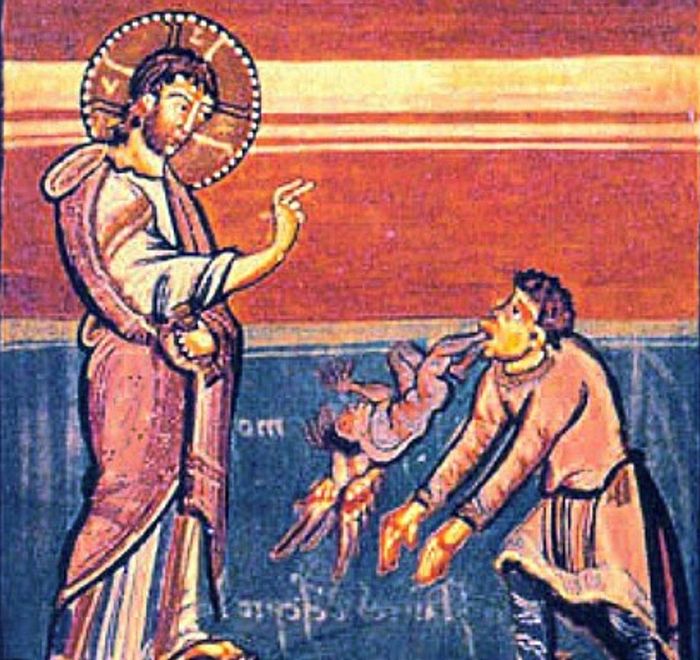 Matthew 17:14-23. From The Explanation of the Gospel of St. Matthew by Blessed Theophylact, Archbishop of Ochrid and Bulgaria
Matthew 17:14-23. From The Explanation of the Gospel of St. Matthew by Blessed Theophylact, Archbishop of Ochrid and Bulgaria
Matthew 17:14-15 And when they were come to the multitude, there came to Him a certain man, kneeling down to Him, and saying, Lord, have mercy on my son: for he is lunatic, and sore vexed: for oftimes he falleth into the fire, and oft into the water.
That this man is exceedingly faithless is clear from the words which Christ spoke in reply to him, “O faithless generation,” and from the fact that the man himself blamed the disciples. The moon was not the cause, but rather, the demon would take note when the moon was full, and then would set upon his victim, so that men would blaspheme the created works of God as maleficent. You, then, O reader, understand that it is a foolish man that changes as the moon, as it is written,[1] at times waxing great in virtue, at other times waning and vanishing altogether. Then the foolish man becomes deranged and falls down into the fire of anger and lust, and into water, that is, the of the many cares of life, in which Leviathan the devil dwells, he who reigns over over the waters. For are not the cares of the rich like waves that follow each other in quick succession?
24. July 2018 - 8:11
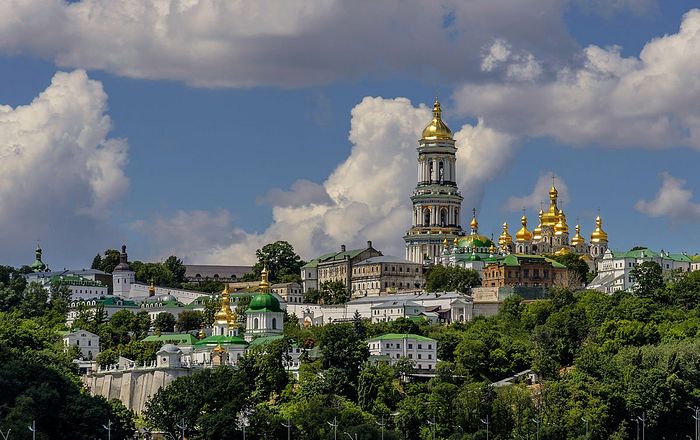 80 theologians and academics from 15 countries throughout the world have converged in Kiev today for the opening of the “Kiev Caves Lavra- Athos-Jerusalem: Unity Through the Ages” conference, which is being held today and tomorrow at the Kiev Caves Lavra, reports the International Institute of the Athonite Legacy. In particular, the conference is being attended by representatives from Mt. Athos and the Church of the Holy Sepulchre in Jerusalem, as well as from the UK, USA, Russia, Belarus, Greece, Israel, Austria, Germany, Romania, Bulgaria, Moldova, Poland, Serbia, the Czech Republic, and Georgia.
80 theologians and academics from 15 countries throughout the world have converged in Kiev today for the opening of the “Kiev Caves Lavra- Athos-Jerusalem: Unity Through the Ages” conference, which is being held today and tomorrow at the Kiev Caves Lavra, reports the International Institute of the Athonite Legacy. In particular, the conference is being attended by representatives from Mt. Athos and the Church of the Holy Sepulchre in Jerusalem, as well as from the UK, USA, Russia, Belarus, Greece, Israel, Austria, Germany, Romania, Bulgaria, Moldova, Poland, Serbia, the Czech Republic, and Georgia.
17. July 2018 - 10:32
Today the Tsar is with Sts. Boris and Gleb, with St. Sergius, with Blessed Ksenia, with St. Seraphim. There is neither treason nor flattery around him. He has much more power and strength.
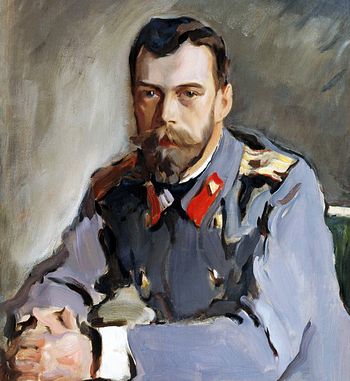 The sovereign emperor has more power today than one hundred years ago. A hundred years ago, propaganda efforts turned him into a monster, personifying the state system, earmarked for ruthless annihilation. Cruelty, indifference, luxury, and debauchery were attributed to the regime. All of this was automatically transferred to the image of the reigning house, and so successfully that yesterday’s “loyalists” silently partook of the murder of the head of state and the whole household.
The sovereign emperor has more power today than one hundred years ago. A hundred years ago, propaganda efforts turned him into a monster, personifying the state system, earmarked for ruthless annihilation. Cruelty, indifference, luxury, and debauchery were attributed to the regime. All of this was automatically transferred to the image of the reigning house, and so successfully that yesterday’s “loyalists” silently partook of the murder of the head of state and the whole household.
And today? Today we have been sobered by the events of the previous century. After all, we know that the luxury of the oligarchs exceeds that of the tsars at times, although wholly devoid of any moral justification. The debauchery of today’s global Sodom makes us look at many sinners of former times as at kindergarten students. And the indifference of people to one another in a world where money is the main value is unmatched. As for cruelty, the twentieth century surpassed all. The tongue goes numb here and fingers refuse to type.
17. July 2018 - 10:30
At one time, even fairly recently, the date July 17 in the so-called “new style,” was marked as a day of sorrow, because on this day the Russian people and the Russian diaspora remembered the great evil act when the Royal Family was brutally killed in the basement of Ipatiev House.
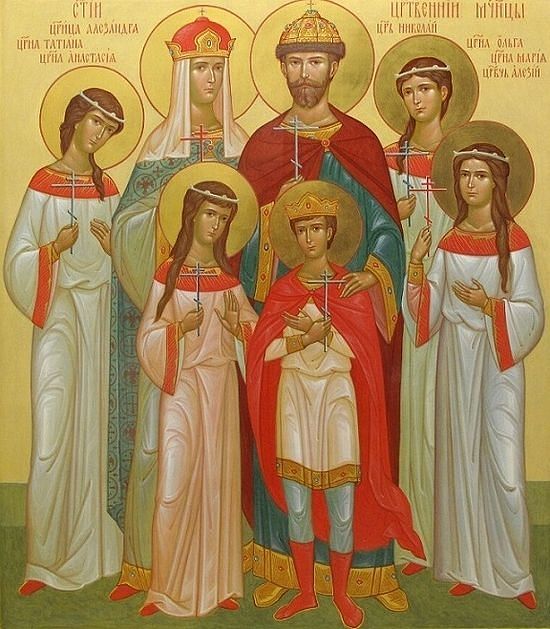 This was a day of mourning, but no longer! Now the Royal Family has been glorified as a family of holy martyrs. Never forget that when the Church glorifies a saint, the act itself does not create the saint, it only declares to the people that this person or this group of people have been glorified in God.
This was a day of mourning, but no longer! Now the Royal Family has been glorified as a family of holy martyrs. Never forget that when the Church glorifies a saint, the act itself does not create the saint, it only declares to the people that this person or this group of people have been glorified in God.
In the collection of the Lives of Saints we see a wonderful example. Once there was a man who occupied a very lofty position, he was renowned and wealthy, but he left to join a monastery, to become a monk, and took up the life of the ascetics, in fasting, prayer and deprivation. Others lived nearby who shared his way of life, many of them were more severely ascetic than he. Yet the faithful began to flock to him, benefiting from his inspired spiritual discussions and guidance, and the Lord glorified him with the gift of sagacity and miracles. One of the monks asked his elder: why is this so? “This man is an ascetic, of course, but he is no better than the others, in fact, there are others who lead stricter ascetic lives, but are not granted the gifts of discernment or miraculous works, with such spiritual talents. Why did the Lord bestow these upon him, then?”
17. July 2018 - 10:29
Sermon read by Archbishop Mark of Berlin on the feast day of the Holy New Martyrs and Confessors of Russia in 2001
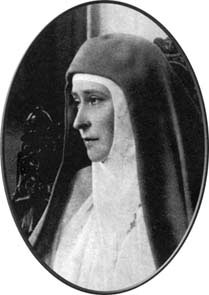 The Divine meaning of suffering can be understood only through the help of grace. For this, the Lord consoles His sorrowful disciples and all of us, sending us “the Comforter… even the Spirit of truth” Who “will guide you into all truth” (John 15:26, 16:13).
The Divine meaning of suffering can be understood only through the help of grace. For this, the Lord consoles His sorrowful disciples and all of us, sending us “the Comforter… even the Spirit of truth” Who “will guide you into all truth” (John 15:26, 16:13).
The Holy New Martyrs of Russian are close to us in time and in spirit, the spirit in which we were raised, which we have assimilated to the best of our abilities. Today, the iconostasis of our church contains relics of the Holy Martyrs Elizabeth and Barbara, who are particularly close to us. Holy Grand Duchess Elizabeth was a princess of Darmstadt, who left her homeland and found a new one, both spiritual and physical. In the terrible years of persecution, her cell-attendant, the Russian novice Barbara, joined her, and they proceeded towards martyrdom together.
23. June 2018 - 15:20
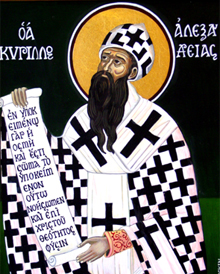 Saint Cyril, Archbishop of Alexandria, a distinguished champion of Orthodoxy and a great teacher of the Church, came from an illustrious and pious Christian family. He studied the secular sciences, including philosophy, but most of all he strove to acquire knowledge of the Holy Scriptures and the truths of the Christian Faith. In his youth Cyril entered the monastery of Macarius in the Nitreia hills, where he stayed for six years. Theophilus (385-412), the Patriarch of Alexandria, ordained him as a deacon, numbered him among the clergy and entrusted him to preach.
Saint Cyril, Archbishop of Alexandria, a distinguished champion of Orthodoxy and a great teacher of the Church, came from an illustrious and pious Christian family. He studied the secular sciences, including philosophy, but most of all he strove to acquire knowledge of the Holy Scriptures and the truths of the Christian Faith. In his youth Cyril entered the monastery of Macarius in the Nitreia hills, where he stayed for six years. Theophilus (385-412), the Patriarch of Alexandria, ordained him as a deacon, numbered him among the clergy and entrusted him to preach.
Upon the death of Patriarch Theophilus, Cyril was unanimously chosen to the patriarchal throne of the Alexandrian Church. He led the struggle against the spread of the Novatian heresy in Alexandria, which taught that any Christian who had fallen away from the Church during a time of persecution, could not be received back into it.
 The sovereign emperor has more power today than one hundred years ago. A hundred years ago, propaganda efforts turned him into a monster, personifying the state system, earmarked for ruthless annihilation. Cruelty, indifference, luxury, and debauchery were attributed to the regime. All of this was automatically transferred to the image of the reigning house, and so successfully that yesterday’s “loyalists” silently partook of the murder of the head of state and the whole household.
The sovereign emperor has more power today than one hundred years ago. A hundred years ago, propaganda efforts turned him into a monster, personifying the state system, earmarked for ruthless annihilation. Cruelty, indifference, luxury, and debauchery were attributed to the regime. All of this was automatically transferred to the image of the reigning house, and so successfully that yesterday’s “loyalists” silently partook of the murder of the head of state and the whole household.
 Matthew 17:14-23. From The Explanation of the Gospel of St. Matthew by Blessed Theophylact, Archbishop of Ochrid and Bulgaria
Matthew 17:14-23. From The Explanation of the Gospel of St. Matthew by Blessed Theophylact, Archbishop of Ochrid and Bulgaria 80 theologians and academics from 15 countries throughout the world have converged in Kiev today for the opening of the “Kiev Caves Lavra- Athos-Jerusalem: Unity Through the Ages” conference, which is being held today and tomorrow at the Kiev Caves Lavra, reports the International Institute of the Athonite Legacy. In particular, the conference is being attended by representatives from Mt. Athos and the Church of the Holy Sepulchre in Jerusalem, as well as from the UK, USA, Russia, Belarus, Greece, Israel, Austria, Germany, Romania, Bulgaria, Moldova, Poland, Serbia, the Czech Republic, and Georgia.
80 theologians and academics from 15 countries throughout the world have converged in Kiev today for the opening of the “Kiev Caves Lavra- Athos-Jerusalem: Unity Through the Ages” conference, which is being held today and tomorrow at the Kiev Caves Lavra, reports the International Institute of the Athonite Legacy. In particular, the conference is being attended by representatives from Mt. Athos and the Church of the Holy Sepulchre in Jerusalem, as well as from the UK, USA, Russia, Belarus, Greece, Israel, Austria, Germany, Romania, Bulgaria, Moldova, Poland, Serbia, the Czech Republic, and Georgia.
 This was a day of mourning, but no longer! Now the Royal Family has been glorified as a family of holy martyrs. Never forget that when the Church glorifies a saint, the act itself does not create the saint, it only declares to the people that this person or this group of people have been glorified in God.
This was a day of mourning, but no longer! Now the Royal Family has been glorified as a family of holy martyrs. Never forget that when the Church glorifies a saint, the act itself does not create the saint, it only declares to the people that this person or this group of people have been glorified in God. The Divine meaning of suffering can be understood only through the help of grace. For this, the Lord consoles His sorrowful disciples and all of us, sending us “the Comforter… even the Spirit of truth” Who “will guide you into all truth” (John 15:26, 16:13).
The Divine meaning of suffering can be understood only through the help of grace. For this, the Lord consoles His sorrowful disciples and all of us, sending us “the Comforter… even the Spirit of truth” Who “will guide you into all truth” (John 15:26, 16:13). Saint Cyril, Archbishop of Alexandria, a distinguished champion of Orthodoxy and a great teacher of the Church, came from an illustrious and pious Christian family. He studied the secular sciences, including philosophy, but most of all he strove to acquire knowledge of the Holy Scriptures and the truths of the Christian Faith. In his youth Cyril entered the monastery of Macarius in the Nitreia hills, where he stayed for six years. Theophilus (385-412), the Patriarch of Alexandria, ordained him as a deacon, numbered him among the clergy and entrusted him to preach.
Saint Cyril, Archbishop of Alexandria, a distinguished champion of Orthodoxy and a great teacher of the Church, came from an illustrious and pious Christian family. He studied the secular sciences, including philosophy, but most of all he strove to acquire knowledge of the Holy Scriptures and the truths of the Christian Faith. In his youth Cyril entered the monastery of Macarius in the Nitreia hills, where he stayed for six years. Theophilus (385-412), the Patriarch of Alexandria, ordained him as a deacon, numbered him among the clergy and entrusted him to preach.